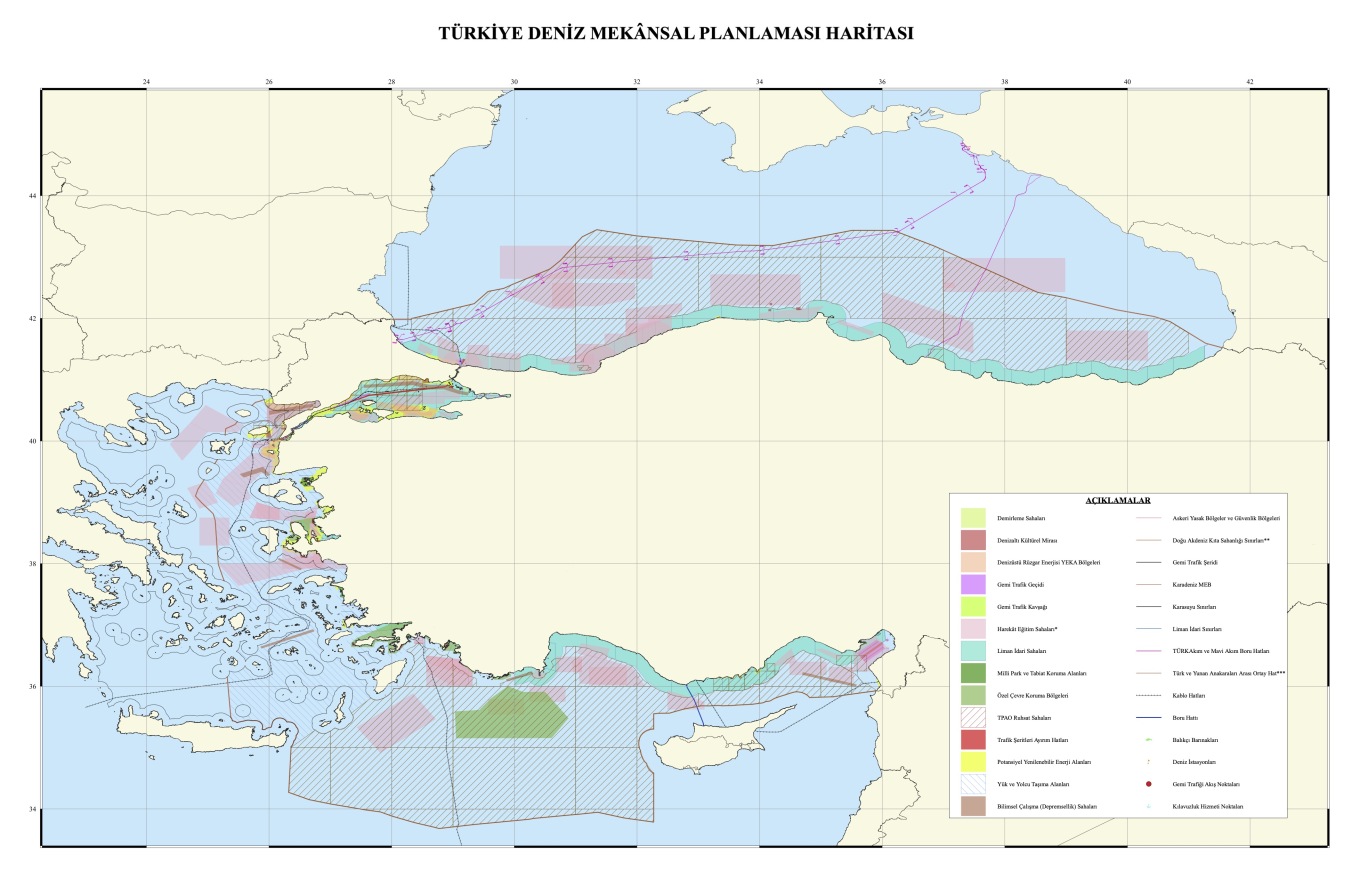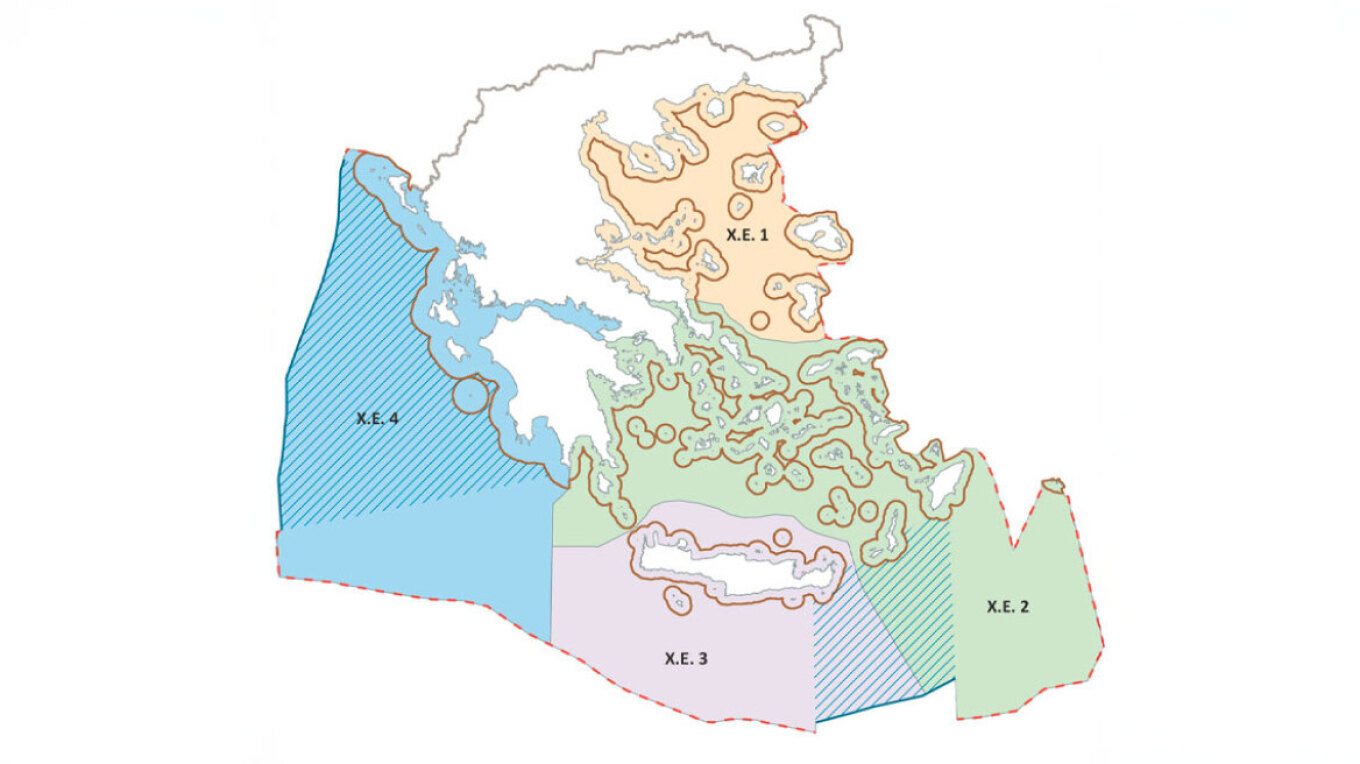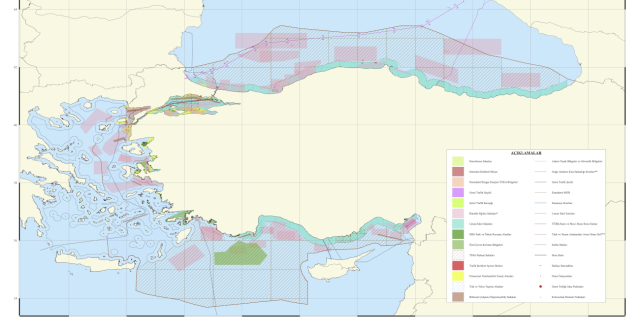By sending its own maps to the relevant UNESCO agency, Turkey is responding to Greece’s recent completion of the first stage of its maritime spatial planning. This represents the initial official step toward delineating human activities within the marine environment — a plan that Athens has already announced will soon be submitted to the United Nations as well.
The Turkish maps reflect Ankara’s well-known revisionist stance, which challenges the legal effect of the Greek islands and promotes its theory of the “median line” between Turkey and mainland Greece. Notably, the red line on the map starts at the mouth of the Evros River and extends across the northern and southern Dodecanese, excluding the continental shelf of the islands and recognizing only their 6-nautical-mile territorial sea.
Details of the Turkish Map
The map, designed by Ankara University, was officially submitted to UNESCO as a so-called “scientific” document. In its southeastern section, covering the Eastern Mediterranean, the map shows, with diagonal lines, the offshore blocks assigned to the Turkish Petroleum Corporation (TPAO) for exploration. These areas overlap with Greece’s declared maritime claims and are directly linked to the so-called “Blue Homeland” doctrine.
Additionally, permanent military exercise areas — unilaterally designated by Ankara — are marked in pink.
Of particular note is a black line crossing the international waters north of Crete and extending to the Dardanelles. The Turkish maps label this as a “cable” without providing any further explanation regarding its purpose or the nature of this infrastructure.
See the Map:

Reaction to the Greek Initiative
Greece’s announcement of its maritime spatial planning project triggered strong reactions from Turkey. For the first time, Greece has defined the geographical framework for its activities in the marine environment — a move fully grounded in European and international law and representing a significant step in asserting national sovereignty.
See the Greek Map:

Explore related questions
